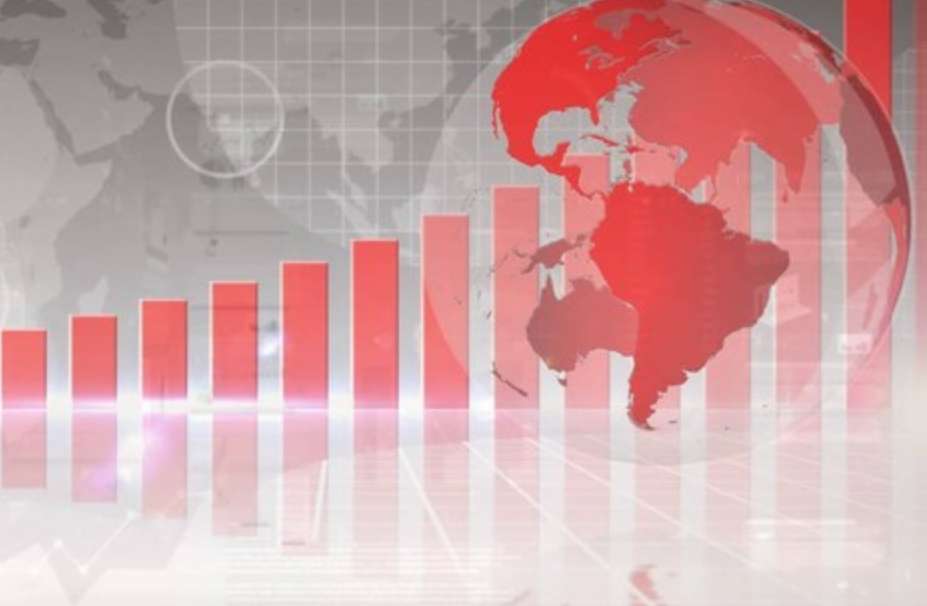When Will the Global Economy Improve?
Advertisements
In the early years of the 21st century, it became increasingly evident that the geopolitical landscape was shifting. The rivalry between two superpowers, China and the United States, has emerged as a dominant narrative, shaping discussions and decisions across the globe. From the volatile regions of the Middle East to the intricate situations in Taiwan and the Korean Peninsula, and the precarious waters of the South China Sea, the contest between these two nations has left an indelible mark. This tension is not merely a fleeting moment in history; rather, it is a drawn-out saga of persistence and conflict, where the potential triumph of one party portends the accelerated decline of the other, creating a relentless cycle of competition.
From Beijing's point of view, the narrative is one of remarkable growth and resilience. China has risen to become the world's foremost industrial powerhouse, boasting an impressive share of 40% of global industrial capacity. This ascension, spurred on by decades of reform and opening up to the world, has transformed the country's economic landscape dramatically over the past 40 years. The manufacturing sector has played a crucial role, alongside real estate, forming the backbone of this rapid economic expansion. However, this very expansion has also introduced significant pressures, steeling China’s resolve in the face of external challenges. Importantly, the real estate boom has created a reservoir of wealth for the populace, contrasting sharply with the vulnerabilities faced by economies heavily reliant on consumption for growth. Had China pursued a consumption-driven strategy akin to that of Western nations, its capacity to weather financial storms, particularly those triggered by fluctuations in the US dollar, would have likely diminished.

The decoupling between China and the United States has had tangible consequences for American economic conditions. With a noticeable inflation surge, the dollar's decoupling from Chinese goods has led to a peculiar scenario where the dollar's value appreciates while its purchasing power falters. This relationship between currency valuation and consumer purchasing power typically follows a more predictable path; however, the current situation reveals underlying issues within the US economy. The United States has attempted to prop up the dollar by creating illusions of stock market prosperity, yet these efforts are undergirded by significant market bubbles, raising questions about the sustainability of such growth. The market capitalization of seven major American technology companies exceeds that of more than 500 firms listed on the Chinese A-share market, prompting inquiries about whether American stocks are overvalued or if Chinese companies remain undervalued.
The disparity between reported American economic data and actual conditions cannot be ignored. The apparent prosperity of the stock market resembles a game of musical chairs, where eventually, the music will stop, leaving many without a seat. As desperation grows, the United States has resorted to military maneuvers, drawing attention to ongoing conflicts like the Israel-Palestine struggle, even while simultaneously increasing interest rates to draw back speculative capital, attempting to maintain an illusory bubble. What is unfolding on a global scale resembles a tidal wave of capital, fiercely threatening other connected economies.
Moreover, the US has realized that its financial strategies are not as all-encompassing as once believed. Countries that find themselves targeted for economic exploitation have increasingly found solace and support from China, especially those involved in the Belt and Road Initiative. Through currency swaps and direct purchases, China has been able to provide critical economic lifelines, thwarting US attempts at dominance, all while incurring the increased costs associated with interest rate hikes that inevitably accompany these monetary maneuvers. A conspicuous reduction in interest rates in September 2024 further hints at the mounting difficulties faced by the US economy in this complex global landscape.
In response to these challenges, notable measures have been introduced, such as consumer vouchers, aimed at pivoting the external market toward domestic consumption. This initiative has dual purposes: fostering corporate resilience, and leveraging the innovation of burgeoning industries like electric vehicles, low-altitude logistics, and artificial intelligence, thus compensating for potential declines in real estate. It reflects a strategic adaptation to a rapidly evolving economic environment.
While China's real estate sector enjoyed two decades of explosive growth, the current landscape poses challenges that cannot be overlooked. While home prices once acted as a catalyst for economic growth, they have now become a burden, constricting consumer spending. The focus now must shift to preventing systemic risks amid declining property values. For cities beyond the first tier, hopes for price appreciation could be described as mere fantasies; the sector has essentially fulfilled its historical role. With declining birthrates and urban migration, a fundamental imbalance between supply and demand now defines the reality of housing markets across numerous cities.
Nevertheless, the noise from various commentators fails to acknowledge these dynamics, as some continue to insist that monetary stimulus will drive further increases in housing prices. Such beliefs ignore basic economic principles: prices must reflect underlying value, and in a context devoid of demographic support, real estate loses its fundamental value.
China's extensive strategic maneuvers aim to break free from the constraints imposed by American hegemony, which has historically exploited global resources. The ongoing competition signals a broader struggle for redefining global economic structures. As the battle intensifies, one can expect increasing volatility in the world economy. Echoing the wisdom of generations past, the notion of shifting fortunes rings true—what rises must eventually fall, and this geopolitical rivalry promises to witness a significant rebalancing of power. The protracted nature of this struggle does not diminish the prospect of a favorable resolution for China, which is buttressed by its formidable industrial capabilities and burgeoning technological prowess.
Leave A Comment